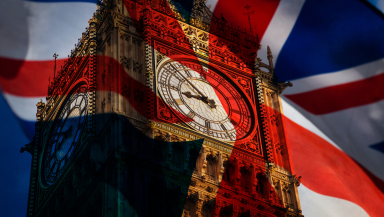
We have just marked the one year anniversary of the General Election, when Labour swept to power with a huge majority of 174.
But this was hardly a repeat of 1997 when Tony Blair entered Downing Street on a wave of hopeful optimism. It was a decisive rejection of the Conservatives rather than a ringing endorsement of Labour. Mostly it was born of a desire for someone to do better than the last lot. Voters were sceptical but willing to give them a chance.
But Keir Starmer’s Premiership got off to a shaky start with an ill-judged decision to cut winter fuel payments for all but the poorest pensioners. A partial u-turn eventually followed, but last week an angry rebellion on the government’s own benches led to another climbdown over welfare cuts for disabled people.
Other policies have also caused consternation. Increasing employer national insurance contributions have added extra burdens on pressurised small businesses. Payment incentives to support struggling farmers have been slashed. And whilst net migration has fallen sharply, people are still coming in their boatloads across the Channel, fuelling the rhetoric of those claiming that we are being ‘invaded’ by illegal immigrants.
There is a general feeling that everything the state does is broken, or at least not working as it should. It seems as if every government department is dealing with an unmanageable backlog, gaping spending deficits, or declining recruitment figures.
External factors have also played a part in the government’s woes, with Donald Trump’s unpredictability prompting a boost to UK defence spending and diplomatic attempts to fend off high US trade tariffs. The war in Ukraine continues, and the situation in the Middle East is more combustible than it has been for many years.
All of this paints a gloomy picture for Keir Starmer and there is real disappointment from those who hoped his government would make a quick and positive impact.
As Christians, how should we be praying for this government, for the opposition parties, and for the general political and economic outlook? For starters, let’s be slow to rush to judgement.
Opposition can be frustrating, but it is certainly easier than being in government. It’s easy to make expansive promises when you don’t have to implement them. Even easier to be an armchair politician full of outraged opinions and devoid of responsibility. The electorate has a habit of wanting contradictory things, such as lower taxes and better public services.
Many problems facing the government have deep roots and, let’s be honest, are very expensive to tackle. This is why sorting out social care has been repeatedly deferred over the last two decades. But it does need to be tackled. And for that we need sensible, responsible government which makes clear that there are trade-offs, and a politically literate electorate who understands this.
Unfortunately, big government can become unwieldy and incompetent and make big errors. HS2 appears to have wasted billions, as did the Covid PPE scandal. Miscarriages of justice such as the Post Office Horizon debacle or the negligence leading to the Grenfell Tower disaster all contribute to the distrust and disillusionment from the voters towards those they elect or appoint to run things.
Add to this the personal failings of many in leadership positions, and it’s no wonder that people are looking around for something better. However, democracy is still the best form of government of any that have been tried, and we know that those in authority over us are put there by God. It is His authority that makes theirs legitimate.
This means that our leaders are accountable to Him for their stewardship, whether they realise it or not. It also means that we are to respect them and, in the words of 1 Peter 2:13, to “submit (ourselves) for the Lord’s sake to every human authority.”
This doesn’t mean blind obedience, but it does mean that we should pray for them to exercise great wisdom in the multitude of difficult decisions. It also means we can practise good citizenship by having some grace for our leaders, and acknowledging the scale of the task they face.
So as we take stock of the first year of this Labour administration, let’s commit to praying for good government. What does that look like? As Tom Wright and Mike Bird put it in their excellent book, Jesus and the Powers, “when government performs its job well it enables freedom to flourish, perpetuates peace and administers justice.”
And in our engagement with government and all those in authority over us, let’s seek to be an electorate that is wise and patient, but still hungering and thirsting for freedom, peace and justice, both domestically and internationally.
Tim Farron has been the Member of Parliament for Westmorland and Lonsdale since 2005 and served as the Leader of the Liberal Democrat Party from 2015 to 2017. Tim is also the host of Premier’s ‘A Mucky Business’ podcast, which unpacks the murky world of politics and encourages believers around the UK to engage prayerfully. He is the author of A Mucky Business: Why Christians should get involved in politics.













